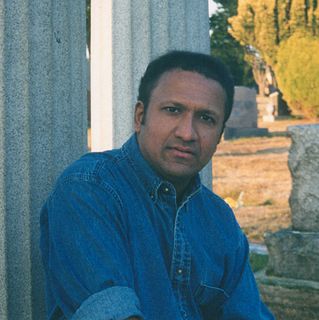A Quote by Max Boot
In the 16th and 17th centuries, as many as 60,000 people were executed in Europe as suspected witches. But it would be nice to think that centuries of advances in science and education have made people less prey to phantasms and falsehoods.
Related Quotes
One of the interesting things about the history of poetry in the 16th, 17th, and 18th centuries is that people who read liked getting their information in rhyme just as much as in prose. The genre that we would think of as nonfiction often was written in verse in forms like the Georgic when people thought that one of the tasks of poetry was conveying arguments and information in a pleasant way.
Making two possibilities a reality. Predicting the future of things we all know. Fighting off the diseased programming Of centuries, centuries, centuries, centuries. Science fails to recognise the single most Potent element of human existence. Letting the reigns go to the unfoldings faith, Science has failed our world. Science has failed our mother earth.
The processes of secularization that followed in the wake of the Reformation continue to work themselves out in complicated ways, not only in Europe but also in North America. To make a very long and complex story short, the success of the Reformation combined with the persistence and renewal of Roman Catholicism in the 16th and 17th centuries made Christianity into an enduring, disruptive problem in new ways, layered on top of problems that already affected late medieval Christianity.
I would love to do a period piece - in the 18th or 17th century. To me, it would be such an incredible challenge because of the way people carried themselves. There are so many incredible stories within those centuries - just the language and the way they carried themselves and what they were going through.
The word crap is actually another word that's very, very old. It was taken over from 17th century England by the pilgrim fathers and Americans were talking about things being crap in the 17th and 18th centuries. What Sir Thomas Crapper – complete coincidence – does is not invent the flushing toilet, as many, many people believe, but was a great promoter for it. He ran a business marketing other people's products and that's why his name was on them. When the American soldiers came over in the First World War, they all thought it was hilarious that it said 'crapper' on them.
There were 14,000 people at the rally for the president in Ohio. There were another 8,000 people in Virginia. If all 22,000 of those people opened their wallets and gave $1,000 each, that would be less than one donation from a billionaire to the super PACs. And that's why he's in for the fight of his life.
Who of us would not be glad to lift the veil behind which the future lies hidden; to cast a glance at the next advances of
our science and at the secrets of its development during future centuries? What particular goals will there be toward
which the leading mathematical spirits of coming generations will strive? What new methods and new facts in the
wide and rich field of mathematical thought will the new centuries disclose?
The life and soul of science is its practical application, and just as the great advances in mathematics have been made through the desire of discovering the solution of problems which were of a highly practical kind in mathematical science, so in physical science many of the greatest advances that have been made from the beginning of the world to the present time have been made in the earnest desire to turn the knowledge of the properties of matter to some purpose useful to mankind.
When I contemplate the immense advances in science and discoveries in the arts which have been made within the period of my life, I look forward with confidence to equal advances by the present generation, and have no doubt they will consequently be as much wiser than we have been as we than our fathers were, and they than the burners of witches.
The decline of witch-belief was . . . entirely the product of religious skepticism. . . . The Catholic Church did not reform itself on this matter; it was forced by outside pressure to reform. To be sure, the Protestant churches were no better in this regard; it is simply that they had less time - only two or three centuries - to engage in the torching of witches. After all, John Wesley, the founder of Methodism, stated quite correctly that disbelief in witches meant a disbelief in the Bible.


































